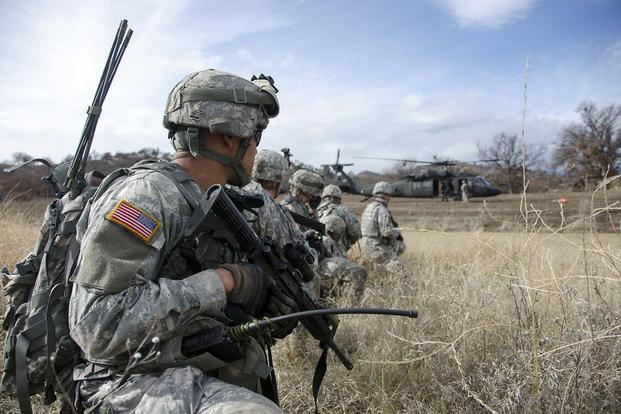Only a few hundred of the California National Guardsmen who wrongly received bonuses will have to pay back the money, the Pentagon said Tuesday.
The vast majority of the estimated 17,500 soldiers who mistakenly received bonuses before 2011 won't have to pay the money back and those who did will be reimbursed, a top Defense Department official said.
Instead, the Defense Department was focusing on "only a few hundred cases" of soldiers who "knew or should have known" that they were wrongly receiving re-enlistment and student loan bonuses. They now face the possibility of having their cases heard by the Army Board for the Correction of Military Records, said Peter Levine, the acting undersecretary for personnel and readiness.
Recouping money wrongly paid out is a "fact of life" in the military, Levine said, but the vast majority of the California National Guard soldiers "may have been misled" into taking the bonuses and their debts will be forgiven.
"If the service members fulfilled their service commitment and there's no obvious reason to believe that they knew or should have known that it was an erroneous payment, then we don't need further review to get rid of that case," Levine said at a Pentagon briefing.
Those who honestly took the bonuses and then paid back the government will be reimbursed, Levine said. The review of cases and the reimbursements should be completed by July, he added.
Soldiers who have been cleared should be getting notification of the dismissal of their cases within a month, Levine said. In addition, the Pentagon will notify credit bureaus and attempt to help any troops whose credit was adversely impacted by the bonus errors that mainly resulted from fraud committed by Guard administrators.
Despite reports that wrongful bonus payments were widespread in other states, Levine said the issue is largely limited to California. He said his review "determined there was no other state in which there was the kind of massive problem there was in California. We don't see more than few dozen [cases] in any other state."
The bonus issue resulted from the Pentagon policy to boost incentives for re-enlistment during the height of the wars in Iraq and Afghanistan to meet the demand for troops. According to department figures, the Army National Guard spent $3.2 billion for its Selected Reserve Incentive Program from 2005 to 2010. The cost to taxpayers from errors in the program was expected to amount to "a few million dollars," Levine said.
Army audits found that the authority to issue bonuses was held by state "incentives managers," who worked with little supervision. In California at the time, Master Sgt. Toni Jaffe was the sole person in the California Guard responsible for approving bonuses. In 2011, she pleaded guilty in federal court to filing false claims and was sentenced to 30 months in prison.
In October, as the California National Guard scandal gained national attention, Defense Secretary Ashton Carter named Levine to conduct a review and institute reforms.
Carter directed him to ensure the "fair and equitable treatment of our service members. We are on track to meet all those objectives," he said.
-- Richard Sisk can be reached at Richard.Sisk@Military.com.






























